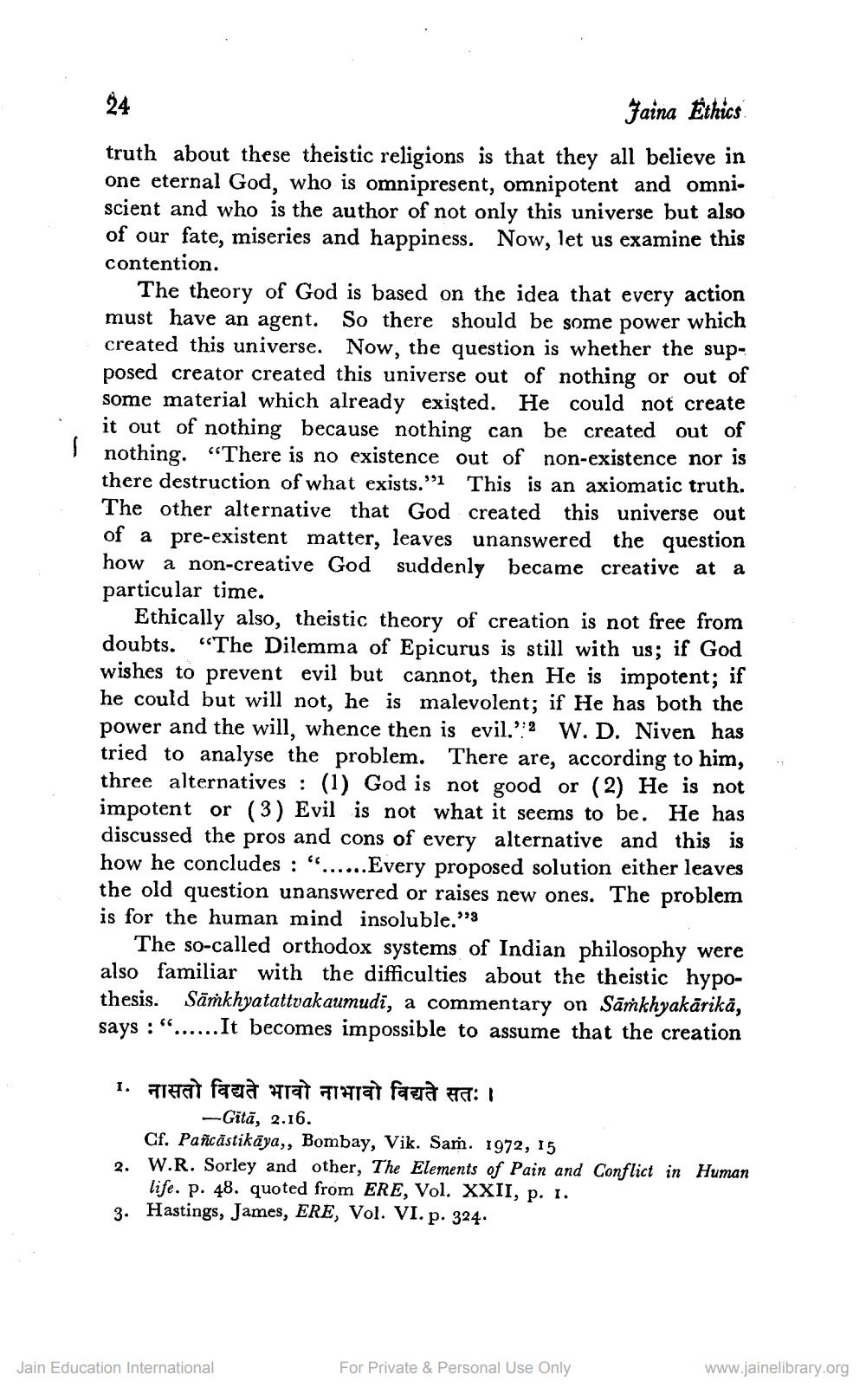________________
24
Faina Ethics
truth about these theistic religions is that they all believe in one eternal God, who is omnipresent, omnipotent and omniscient and who is the author of not only this universe but also of our fate, miseries and happiness. Now, let us examine this
contention.
I
The theory of God is based on the idea that every action must have an agent. So there should be some power which created this universe. Now, the question is whether the supposed creator created this universe out of nothing or out of some material which already existed. He could not create it out of nothing because nothing can be created out of nothing. "There is no existence out of non-existence nor is there destruction of what exists." This is an axiomatic truth. The other alternative that God created this universe out of a pre-existent matter, leaves unanswered the question how a non-creative God suddenly became creative at a particular time.
Ethically also, theistic theory of creation is not free from doubts. "The Dilemma of Epicurus is still with us; if God wishes to prevent evil but cannot, then He is impotent; if he could but will not, he is malevolent; if He has both the power and the will, whence then is evil."2 W. D. Niven has tried to analyse the problem. There are, according to him, three alternatives (1) God is not good or (2) He is not impotent or (3) Evil is not what it seems to be. He has discussed the pros and cons of every alternative and this is how he concludes: "......Every proposed solution either leaves the old question unanswered or raises new ones. The problem is for the human mind insoluble."'3
The so-called orthodox systems of Indian philosophy were also familiar with the difficulties about the theistic hypothesis. Samkhyatattvakaumudi, a commentary on Samkhyakärikä, says: .It becomes impossible to assume that the creation
cc
1. नासतो विद्यते भावो नाभावो विद्यते सतः ।
-Gitā, 2.16.
Cf. Pañcāstikaya,, Bombay, Vik. Sam. 1972, 15
2. W.R. Sorley and other, The Elements of Pain and Conflict in Human life. p. 48. quoted from ERE, Vol. XXII, p. 1.
3. Hastings, James, ERE, Vol. VI. p. 324.
Jain Education International
For Private & Personal Use Only
www.jainelibrary.org




